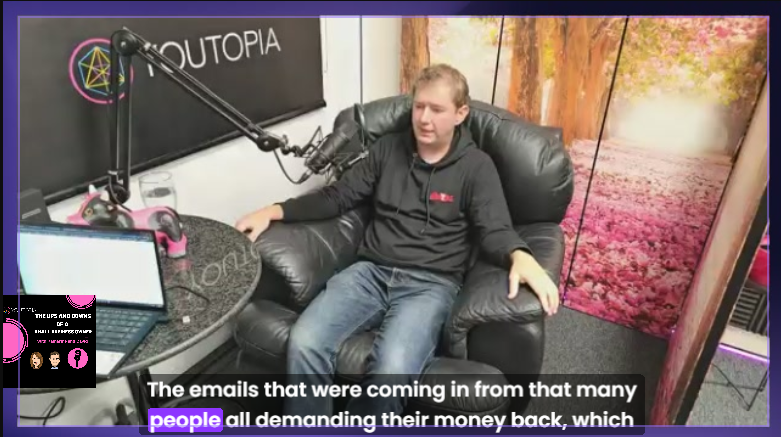July 22 Newsletter
Business Update

Flexible working: Moving from time-based to an outcome-based approach
Flexible working isn’t new. In fact, research shows that many of us (87%) wanted to work on a more flexible basis in 2018 and 2019. What is new, however, is the many businesses that have continued to adopt either completely remote working or a hybrid model since the pandemic transition.
Why have they used to remain working this way? Because flexible working results in a better work-life balance, higher productivity, increased motivation, and reduced staff turnover. Not to mention that it's an employees market right now, so many businesses will need to offer flexible working to compete for talent!
While an outcome-based approach leads to these benefits, it is a steep learning curve. Primarily having to change leadership styles and learning to trust that work is getting done. But it is doable. Here is how to make flexible working work for you and your business.
How to successfully implement flexible working
- Make sure that employees have the right technology and tools – we’re not just talking about laptops and phones. To support flexible working, you also need to deploy tools for chat, video and virtual meetings as well as integrating company systems, intranets or social platforms.
- Ensure that your employees have the necessary training –you need to make sure they have the resources and training so that they can use any new software effectively.
- Change your management style – you need to take a more ‘coach-like’ approach and let go of control. Train and support your employees and delegate authority as well as tasks.
- Communicate more frequently – this is essential for building trust and relationships and to minimise misunderstandings. The more you can encourage collaboration and team involvement, the better.
- Celebrate successes – positivity is key when working from home so make a point of celebrating individual and team successes. It does wonders for self-motivation.
- Give your employees more support – some employees may have difficulty managing their workload with their family and other worries, especially if they are going through some personal difficulty. Bear this in mind and actively help them with their work-life balance.
How do I move to an outcome-based approach?
- Start with the overall business vision and direction – when working virtually, it’s important to communicate the overall vision to your employees. Everything flows from this vision, so keep coming back to it.
- Define high-level business outcomes – next, you should communicate the key business outcome that you are all aiming to achieve. It’s more effective if this outcome reflects the value that your work delivers.
- Help each employee define their own specific outcome – this is essential for remote working! If every individual knows their specific outcome that they are accountable for and how that relates to the bigger picture, it drives them to achieve it.
- Measure performance differently – you will need to use a project management tool to review team activity regularly. You can also distribute employee surveys, monitor and evaluate certain metrics or have regular check-ins with each employee.
Accounting Update

What is the Construction Industry Scheme (CIS)?
CIS is a system that is designed to try to eliminate tax evasion within the building and construction industries. Building contractors should deduct monies from their subcontractor invoices and pay these funds to HMRC. These payments are considered as advance tax payments for subcontractors. Subcontractors do not have to be CIS registered but they will have to pay a higher rate of tax (30%) rather than the standard rate (20%).
What is building related work per the CIS regulations?
- Site preparation
- Demolition work
- Building work
- Repair and maintenance work
- Decorating of buildings
- Post-building clear up
- Internal fittings and fixtures (lighting, gas, water, lifts etc)
Penalties?
- Contractors/subcontractors who aren’t registered for CIS (or do not operate the system correctly), will be subject to interest and penalty charges. Potential CIS penalties could be
- Up to 3 late payments during a year, the penalty is 1% of the total amount defaulted
- Between 4 and 6 missed payments, the penalty is 2% of the total defaulted amount
- Between 7 and 9 missed payments results in a penalty of 3% of the total defaulted amount
- 10 or more defaulted payments results in a 4% penalty of the total defaulted amount.
- There are additional penalties where payments are still outstanding for 6 or 12 months.
What do I need to do?
You must submit a monthly CIS return which covers any payments made to subcontractors made the previous month (6th to 5th of following month), the return should be submitted and payment must be made to HMRC by 19th of the month (13 days after the month end).
App of the month

Show it, say it, send it
Record quick videos of your screen and cam. An essential tool for hybrid workplaces.
Record your screen and camera
Start recording your screen and camera easily. Works on any device using Loom’s desktop and mobile apps or Chrome extension.
Share with a link
Simply paste a link to your video wherever your recipients are and they can watch it without logging in or creating an account.
Keep the conversation going
Use emoji reactions, time-stamped comments, and interactive features to respond to videos and keep your team connected.
Team News
We are excited to announce a new member of the Youtopia family! David (and his wife, Rachel) welcomed their daughter, Aliyah at the beginning of May.
We are also launching our new podcast in the coming weeks, we’ll let you know when it is live and available to listen to.
As always, please feel free to drop in and have a coffee with us!
Until next time,
Katherine, David, Ben and Brandon









